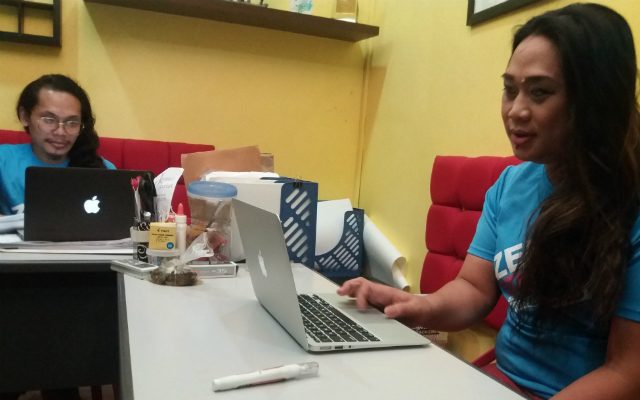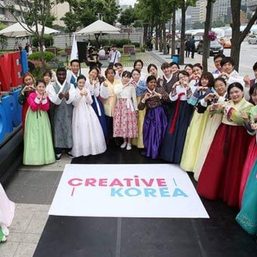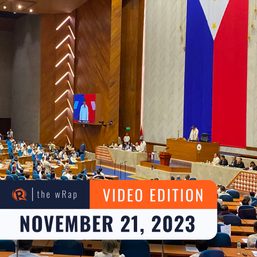SUMMARY
This is AI generated summarization, which may have errors. For context, always refer to the full article.

CEBU CITY, Philippines – Advocates from Cebu urged national candidates to tackle plans to curb the human immunodeficiency virus (HIV)/ acute immunodeficiency syndrome (AIDS) epidemic in the country during the second presidential debate on Sunday, March 20.
“It’s really important because we failed in the Millennium Development Goal (MDG) number 6 –combatting HIV/AIDS, malaria, and other diseases. In the past 10 years, HIV/AIDS prevalence and incidence is spreading,” Cebu Plus program manager Jhaye Encabo told Rappler on Friday, March 18.
According to the Department of Health (DOH), the number of HIV cases in the country may reach 133,000 by 2022 without proper intervention. In May 2015, the World Health Organization (WHO) said the Philippines has the fastest growing HIV epidemic in the world.
Cebu City is at the heart of the country’s HIV epidemic with 7.7% prevalence of HIV among males having sex with males (MSM) alone, as of April 2015. According to Encabo, this means one in every 5 MSMs between the ages of 20 to 24 are HIV positive.
“There’s an emerging need to really respond, not just the health sector but all sectors, even politics. We need to have leaders who would push for prevention activities and care programs. We need to push for quality HIV counseling and testing services since not all facilities have qualified HIV councilors and medical technicians,” she added.
Cebu City’s fight
According to Gerald Ygay, monitoring and evaluation officer of Cebu Plus, the spread of HIV in Cebu is mainly found in 4 sectors: MSMs, people who inject drugs, women sex workers, and transgender women.
In 2014, around 74% of the city’s 1,366 recorded HIV infections were due to needle-sharing, according to the Cebu HIV/ AIDS Registry.
Encabo says that the scarcity and unavailability of syringes and condoms are the main problem.
“According to the Integrated HIV Behavioral and Serologic Surveillance (IHBSS), most males have their first sexual encounters at the age of 15 or 16. They only get access to condoms at the age of 21,” Encabo said.
Despite the glaring number of HIV cases, however, Ygay said the city government is putting up a good fight in curbing new infections.
“We have a good partnership with the LGU and we conduct many prevention activities. It’s a good thing that the Cebu City Health Department is also one of the few satellite treatment hubs,” Ygay added.
The main treatment hub in Region 7 is Vicente Sotto Medical Center.
The city government has partnered with Cebu Plus, a non-profit organization that caters to people living with HIV (PLHIV) and their families. The organization, founded in 2009, only catered to PLHIVs but eventually expanded its advocacy to HIV prevention.
The efforts of Cebu Plus and the LGU focus on educating the public about HIV, free HIV testing, and linking PLHIVs to care.
Political, not a moral issue

For both Ygay and Encabo, HIV prevention is not a moral issue but a political one.
“For me it becomes a political issue because it entails budget and it entails the need to push for advocacy especially for other LGUs who don’t have strong local AIDS councils.
“For the presidential candidates, it’s a matter of what his focus is on the health agenda,” Ygay said.
Ygay explained that having HIV/AIDS prevention in candidates’ platforms is not for the benefit of only one sector but for the general public.
“You don’t want HIV to spread from a key population to the general population. That’s why we urge those running to make it a political issue. What is his/her plans in stopping the HIV epidemic in the Philippines?” he added.
Encabo added that politicians should refrain from treating HIV/AIDS a moral issue.
“Politicians always blame promiscuity. Not everyone is promiscuous, it’s just the chance that they got infected because they didn’t know, that their partners weren’t tested, they don’t know how to protect themselves and they don’t have access to condoms,” she said.
If not solved now, Encabo believes the government will have bigger health and financial problems in the future.
“We only have 20 treatment hubs across the country. A very few percentage of those with HIV have access,” she added.
Ygay and Encabo hope candidates will tackle HIV/AIDS prevention programs during the Sunday debate given that health will be one of the key issues.
“If we don’t respond today, the government cannot afford to treat PLHIVs who will suffer from opportunistic infections. We’ll suffer bigger financial problems,” Encabo concluded.
Aside from health, presidential candidates will also tackle disasters preparedness, climate change, education, and women rights. – Rappler.com
Add a comment
How does this make you feel?















There are no comments yet. Add your comment to start the conversation.